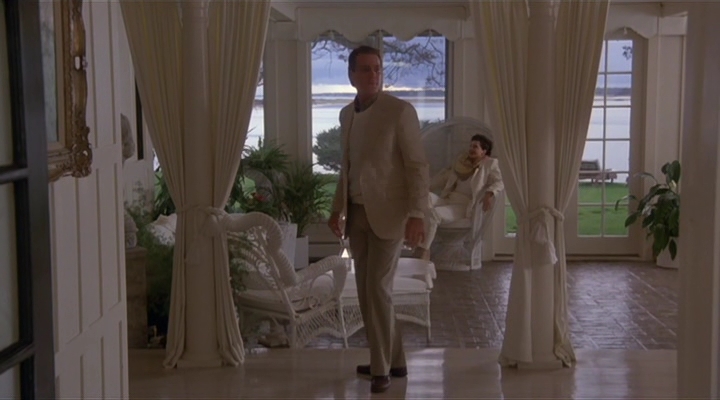Tough Guys Don’t
Dance
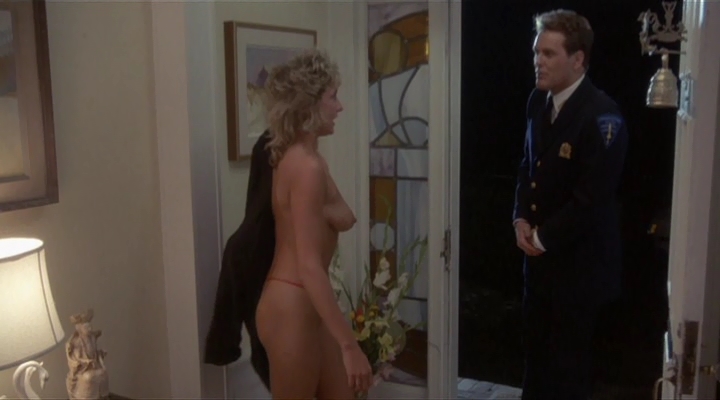
The novel is an
equivoque or agon
of sorts (Hammett and Ginsberg, settling into Poe), the film is an analysis of
Malle’s Atlantic City, to all
intents and purposes. The Great Gatsby (dir. Elliott Nugent or Jack Clayton) is made
something of a preparatory study by the director and offers a comparison, it
will be observed, here and there in the filming. A
Robbe-Grillet motif or two can be seen, cp. Trans Europ Express, Glissements
progressifs du plaisir, Un Bruit qui
rend fou...
There is Cornell Woolrich and “The Black Curtain” (dir. Sydney
Pollack for The Alfred Hitchcock Hour),
a case with some similarities, cf.
Jack Hively’s Street of Chance. Iris Murdoch’s A Severed Head (dir. Dick Clement) is
the key to the nightmare’s inner structure, cf. Ken Russell’s Dance of the Seven Veils for the
repetition of Madeleine-Patty Lareine-Jessica under
Regency, Godard on Terminator 4 (For Ever Mozart).
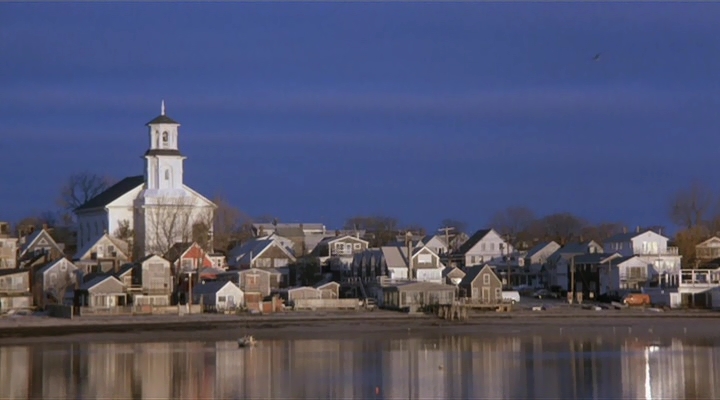
At the center of
this is the celebrated précis of The
Music Lovers, “it’s the love affair of a nymphomaniac and a
homosexual!” (for the “two whores killed in
Helltown one hundred years ago”, cp. The Debussy Film,
the “two unspeakable sleazos” The Devils).
Critics (not Variety) were mainly thrown by the
vacuum of taste in Patty Lareine’s Provincetown
home (cf. Capt. Regency’s house
out Barnstable way), a terrific effect to prepare the flashback of the first
half. Thus Lawrence Tierney giving the title vis-à-vis caviar and cocaine in the
living room (cf. Russell’s Crimes of Passion). “Coke
is a bad bust in Florida.”
“I never shoulda left New York” (cf. Albert Brooks’ Lost
in America). A great film noir en couleur, a swindle that turns
into a frame with elements of vengeance and blackmail but ends quite happily after
all.
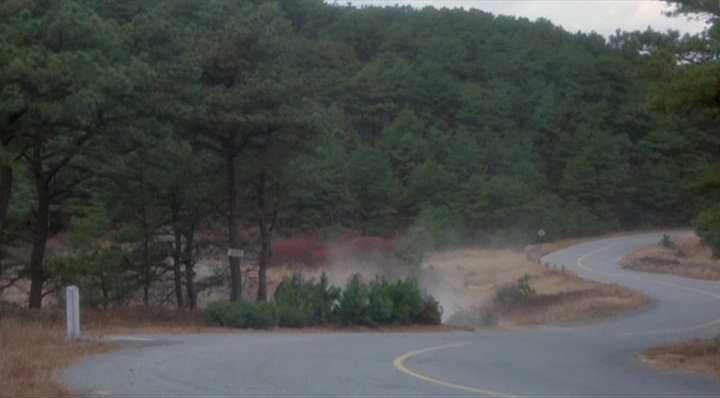
“Is it true
the Pilgrims landed here before they went on to Plymouth?”
“Yeah.”
“And now
they’ve built that wonderful
motel right on the spot. Only a country as mad as ours
could be such a roarin’ success.” The tale of Patty Lareine
and Acting Police Chief Regency and money and cocaine and Madeleine from
“The Fall of the House of Usher”, no less, “that is just as
sure as hogs can shit! Do pahdon mah
French. Muthafucka!”
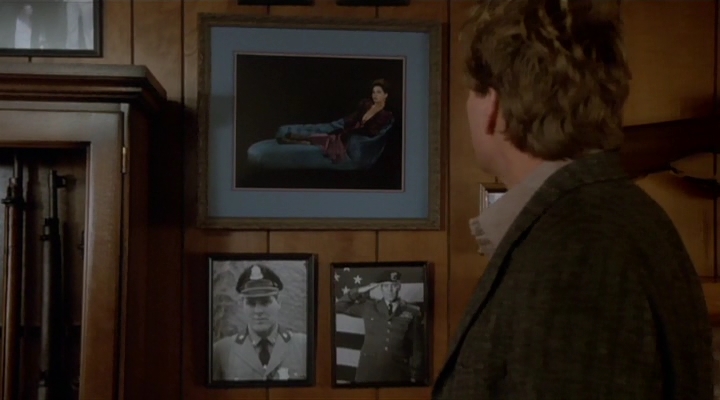
The long walk on
the jetty with “the Duke o’ Dixie” holding a gun recalls
Archie Mayo’s Moontide. “Someday, I’m gonna
run for President!” A question of “the
enforcer—and the maniac.”
“People
just don’t know how tough it is
out there.” The trailer, in which Mailer reads
preview cards, is a work of art in itself, like the opening sequence of
Provincetown views, cf. Gist’s An American Dream, a film derided by
Andrew Sarris in The American Cinema
as “the worst picture of its year” despite the director’s
“stylistic conviction” but because of his “intransigent material.”
John Bailey is
credited as Visual Consultant, the score by Angelo Badalamenti
hints at Puccini’s Turandot,
his theme is sung by Mel Tillis at the bar where
Mailer’s hero pushes a broom after a term in prison, “You’ll
Come Back (You Always Do)”, Pam Tillis sings
the dance number, “Real Man”.
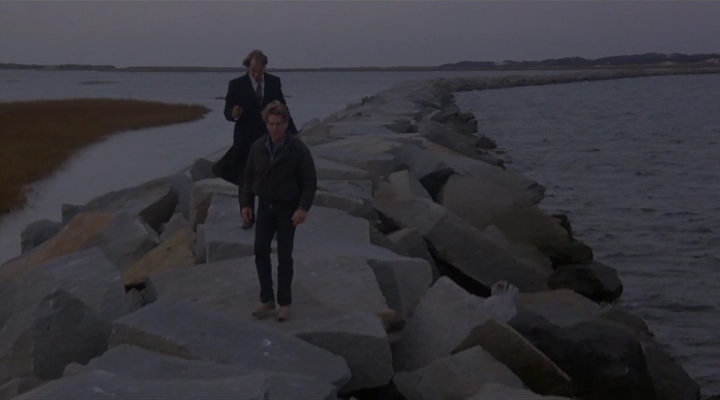
Vincent Canby of
the New York Times, “a lot of
rather portentous musing”. Variety, “part parody and part serious with a nasty streak
running right down the middle.” Roger Ebert (Chicago Sun-Times), “this is as
confusing as The Big Sleep (1946).” Hal Hinson (Washington
Post), “if a gang of inmates from an insane asylum were to stage a
low-rent episode of Dynasty, it might
look something like Tough Guys
Don’t Dance.” Time Out, “a disgrace.” Jonathan
Rosenbaum (Chicago Reader),
“cinematic savvy and style.” Film4, “a fascinating, frenzied
blend of pulp, polemic and profanity.” TV Guide, “curious murder
mystery”. Nick Sambides,
Jr. (All Movie Guide), “an
overcooked soufflé that explodes in the oven.”
